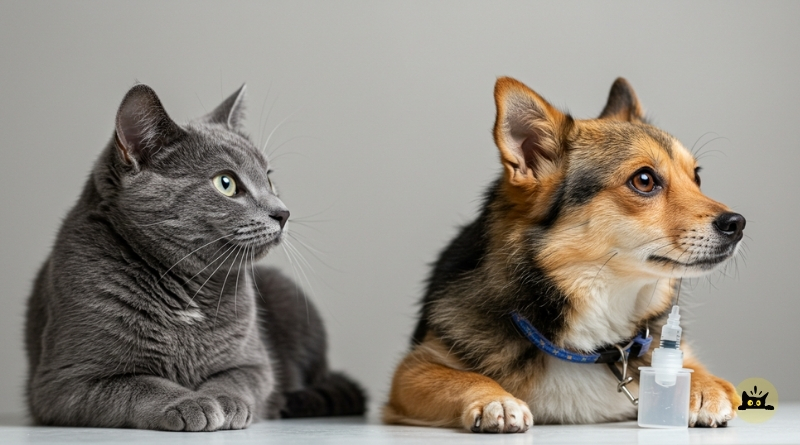Essential Vaccinations are vital for keeping our beloved pets safe from many serious illnesses. Both cats and dogs gain enormous benefits when they receive the right immunizations at the right time. In this comprehensive guide on Essential Vaccinations, we explain the importance of core immunizations, outline the most essential shots for your pet, and offer practical advice on scheduling and managing the process—all in clear and friendly language.
Why Essential Vaccinations Are Important
Vaccinations work by giving your pet a tiny, harmless dose of the germs that cause a particular disease. This process teaches their body to fight infections without them actually getting sick. It is especially important because many of the illnesses these shots protect against can lead to severe complications or even be life-threatening. Reputable organizations such as the American Veterinary Medical Association emphasize that keeping your pet’s immunizations current is one of the most important aspects of responsible pet care.
Essential Vaccinations for Cats
For every cat, there are core vaccinations highly recommended regardless of their lifestyle. These shots protect your feline friend from dangerous and common diseases.
FVRCP Vaccine
Often known as the feline distemper shot, the FVRCP vaccine protects cats against three key diseases: Feline Viral Rhinotracheitis, Calicivirus, and Panleukopenia.
- What It Prevents: This combination shot helps shield your cat from three serious illnesses. For example, feline panleukopenia is extremely contagious and can spread quickly in multi-cat homes or shelters.
- Who Needs It: Every kitten and cat should receive the FVRCP series—typically starting at 6 to 8 weeks of age with boosters given until the kitten is around 16 weeks old.
Rabies Vaccination
- What It Prevents: The rabies shot is crucial because rabies is a fatal disease that can also spread to humans.
- Who Needs It: Every cat should be vaccinated against rabies—even indoor cats—since the disease is nearly always fatal and is legally mandated in many areas.
Keeping up with these essential vaccinations not only protects your cat but also helps maintain community health through herd immunity.
Core Vaccinations for Dogs
Dogs also require a set of important vaccinations to protect them from life-threatening diseases. The following shots are considered core for canine health:
DHPP Vaccine
Commonly referred to as the combination shot, the DHPP vaccine defends against distemper, adenovirus, parvovirus, and parainfluenza.
- What It Prevents: This vital vaccine guards against several dangerous infections. For example, parvovirus can cause severe vomiting, diarrhea, and dehydration, while distemper affects the respiratory, gastrointestinal, and nervous systems.
- Who Needs It: Puppies typically begin receiving the DHPP vaccine at around 6 to 8 weeks of age, with booster shots at regular intervals until they are approximately 16 weeks old.
Rabies Vaccination
- What It Prevents: Like in cats, the rabies shot is critical for dogs because it prevents a deadly disease and is required by law.
- Who Needs It: All dogs need to be vaccinated against rabies, with additional boosters administered as recommended by your veterinarian.
Additional Vaccinations and Considerations
Depending on your pet’s lifestyle and risk factors, your veterinarian might suggest extra immunizations:
- Optional for Cats: For cats that go outdoors or live with other high-risk felines, an extra shot against feline leukemia virus (FeLV) may be advised.
- Optional for Dogs: Dogs that visit boarding facilities, groomers, or dog parks are often recommended to receive additional vaccines such as that for Bordetella bronchiseptica, which causes kennel cough.
Discuss your pet’s individual needs with your veterinarian to create a personalized vaccination schedule.
Vaccination Scheduling and What to Do
A well-planned vaccination schedule is crucial to keeping your pet healthy year after year. Here are some practical tips:
- Start Early: Begin vaccinations as soon as your pet is old enough—puppies and kittens are especially vulnerable before their immune systems are fully developed.
- Keep a Schedule: Regular checkups are key. Follow up with booster shots and maintain a current vaccination record.
- Missed Vaccinations: If your pet misses a scheduled shot, contact your veterinarian immediately. Quick follow-up helps ensure ongoing protection.
Tips for a Smooth Vaccination Process
The day of vaccination can be stressful for both you and your pet. These friendly tips can help make the experience calm and positive:
- Stay Calm: Pets notice your emotions. A relaxed attitude helps ease your pet’s anxiety.
- Prepare Ahead: Ask your vet if there are any special instructions before the appointment. Often, a light meal is suggested or the vet might recommend bringing a favorite toy for comfort.
- After the Shot: Once your pet is vaccinated, watch for any unusual signs such as a slight fever or extra tiredness. Although mild reactions are common, call your veterinarian immediately if you notice severe changes.
Conclusion
Vaccinations are an essential part of keeping your cats and dogs healthy and safe. By following a regular schedule and staying informed about the core shots, you provide your pet with the best defense against dangerous diseases. Whether it’s the FVRCP and rabies shots for your cat or the DHPP and rabies vaccines for your dog, being proactive can lead to a longer, healthier life for your furry friend. For further information and expert advice, visit trusted sources like the American Veterinary Medical Association, the American Animal Hospital Association, and the Cornell University College of Veterinary Medicine. A little preparation today can lead to a happy, healthy tomorrow for your pet.

